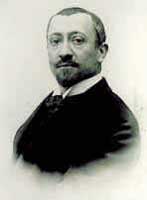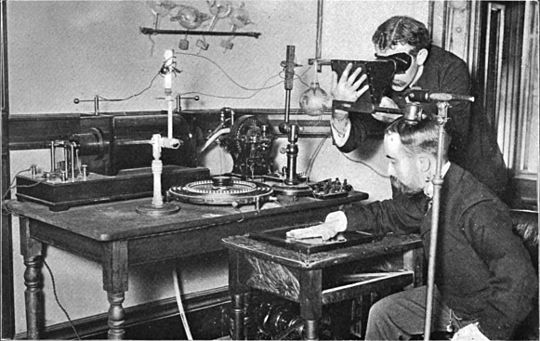Paul Ulrich Villard facts for kids
Quick facts for kids
Paul Ulrich Villard
|
|
|---|---|
 |
|
| Born | 28 September 1860 Saint-Germain-au-Mont-d'Or, France
|
| Died | 13 January 1934 (aged 73) Bayonne, France
|
| Known for | Discoverer of gamma rays |
Paul Ulrich Villard (born September 28, 1860 – died January 13, 1934) was a French chemist and physicist. He is famous for discovering gamma rays in 1900. He made this important discovery while studying the energy coming from a substance called radium.
Contents
Who Was Paul Villard?
Early Life and Education
Paul Villard was born in a small town in France called Saint-Germain-au-Mont-d'Or. He was a very bright student and graduated from a top school, the École normale supérieure, in 1881. After finishing his studies, he taught in several high schools, including one in Montpellier.
Villard's Work in Paris
Even while teaching, Villard kept a special laboratory job at the École Normale Supérieure. He worked there until he retired. When he discovered gamma rays, he was working in the chemistry part of the school in Paris.
What Else Did Villard Discover?
Before his big discovery of gamma rays, Villard also found something called argon hydrate. For many years, from 1888 to 1896, he focused on studying similar chemical compounds, especially how they behaved under high pressure.
How Were Gamma Rays Discovered?
Studying Radium's Energy
Villard was very curious about the energy that came from radium salts. He set up an experiment where this energy passed through a small opening in a protected box. The energy then hit a special photographic plate. He placed a thin layer of lead in the way, knowing that lead could stop alpha rays.
Finding New Types of Rays
After the alpha rays were stopped, Villard saw that the remaining energy was made of two new types of rays. One type could be bent by a magnet, just like other known rays. This type was later called beta rays by Ernest Rutherford.
The Most Powerful Rays
The other type of ray was very strong and could go through almost anything. This was a completely new kind of energy that no one had ever seen before!
Naming the Gamma Rays
Villard was a humble person. He didn't give a special name to the powerful rays he found. A few years later, in 1903, another famous scientist named Ernest Rutherford suggested calling them gamma rays. Rutherford had already named alpha rays and beta rays based on how well they could pass through things. Since Villard's rays were even stronger, the name "gamma rays" stuck!
Villard's Later Important Work
Villard spent a lot of time making better and safer ways to measure radiation. Before his work, people often just looked at how clear an X-ray image of their hand was on a photographic plate. This was not very accurate or safe!
In 1908, Villard was one of the first to use a special device called an ionization chamber to measure radiation. He even created a unit for measuring radiation, which was later named the roentgen. This helped make radiation use much safer.
Retirement and Final Years
When Paul Villard retired from his work in Paris, he moved away from the city. He passed away in Bayonne, France, on January 13, 1934. His discoveries changed how we understand energy and radiation forever.
See also
 In Spanish: Paul Ulrich Villard para niños
In Spanish: Paul Ulrich Villard para niños


